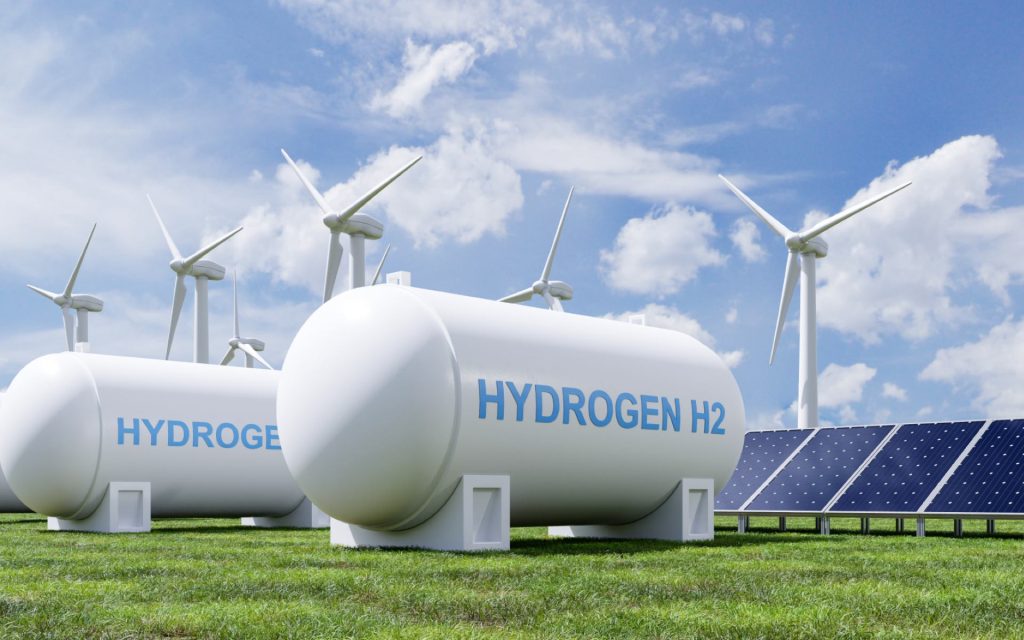Economist Robin Sherbourne says the government and politicians should not exaggerate job promises in the emerging green hydrogen sector.
Speaking at the launch of the second Institute for Public Policy Research (IPPR) green hydrogen monitor on Friday, Sherbourne said the hydrogen industry is capital intensive rather than labour intensive, and there is a danger of overpromising and under delivering.
He highlighted that anyone who has visited a solar photovoltaic or concentrated solar power facility would notice the striking lack of human presence.
“The small park at Arandis is basically managed by a single park manager.
This brings home the essential truth of many renewable energy projects that are capital-intensive undertakings – once built, they require very little labour to manage and maintain.”
Sherbourne’s comments contradict government officials and politicians who tout green hydrogen production as Namibia’s answer to unemployment.
At the Global African Hydrogen Summit in Windhoek last month, officials presented the results of economic modelling, suggesting the sector could generate 250 000 jobs by 2040.
Sherbourne said it is inherently uncertain how many jobs the new, experimental industry will create over the coming decades.
“The estimates provided for Namibia are the results of complicated modelling exercises by consultants based on data and assumptions that are rarely made explicitly. Assumptions have to be made about the labour intensity of each activity and the backward and forward links in the national economy between activities.”
He called for a certain amount of scepticism around the outputs.
“It is hard to imagine that the current projects under development will lead to job creation on the scale advertised.
The question arises, therefore, is the Namibian public being oversold a pup?” Sherbourne questioned.

‘DIRTY’ GREEN HYDROGEN
IPPR director Graham Hopwood highlighted that last month’s green hydrogen summit focused heavily on business models, marketing and green industrialisation, but barely addressed governance or corruption.
He warned that, given Namibia’s experience with the Fishrot scandal and the SME Bank collapse, there’s a tendency to deny the risks until it’s too late.
“There’s no reason to believe the green hydrogen sector is immune to similar risks,” Hopwood said.
He said Namibia’s green hydrogen projects currently face several risk factors, including a lack of transparency, opaque processes around access to finance and land, inadequate community consultation, and concerns over the selection of companies and individuals to run the projects.
He said there are already politically exposed persons and their proxies in company structures and licence arrangements.
By overlooking the corruption risks tied to green hydrogen, Namibia is setting itself up for failure, he added.
According to Hopwood, corruption isn’t a secondary concern; it poses a direct commercial risk and threatens the viability of both projects and businesses.
“If corruption takes root, leaving communities marginalised and benefits not shared equitably, these projects are bound to the founder.
The sooner we recognise that green hydrogen projects cannot thrive on hype alone, but require strong governance frameworks, the better their chances for success.”
Hopwood said the Green Hydrogen Standard, developed by the Swiss-based Green Hydrogen Organisation in 2022, aims to promote green hydrogen in collaboration with the government, industry and other stakeholders.
It is already gaining ground and has picked up some industry support, raising visibility and ensuring its comprehensive adoption is enhanced, he said.
“It should serve as a benchmark for ensuring the legitimacy of green hydrogen projects through proper accreditation and certification.
Companies and projects in Namibia should already be aligning with the standard to ensure future compliance,” he added.
Stay informed with The Namibian – your source for credible journalism. Get in-depth reporting and opinions for
only N$85 a month. Invest in journalism, invest in democracy –
Subscribe Now!










